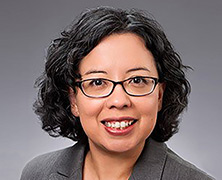The Great Advice that Completely Changed My Career Path
When I was a child, I watched Ordinary People and became convinced that I was going to live my life like Judd Hirsh’s psychiatrist character. Of course, living in a low-income, Mexican-immigrant community in Southeast Los Angeles, I did not know any psychiatrists. But, that character spoke to me, deeply.
For the next decade, I focused on being a good student to get into college and medical school, and then start fixing psyches. By the time I started Stanford undergrad at the age of 17, I still had not met any psychiatrists, but I remained convinced that that would be my life-long profession.
In my first quarter, I foolishly decided to take chemistry with the crazy pre-med students and an upper-level psychology class. I got C’s in both, derailing my confidence and pushing me to the brink of quitting school. Fortunately, like I suspect most loving Mexican parents say to their struggling Mexican-American kids, my parents looked at me and said, “Si se puede, mija.” You cannot hear those words and quit. How could I possibly let them down like that? So, I kept luchando.
During my sophomore year at Stanford, I took a clinical course in psychology. After a few weeks, the senior who ran the course took me aside and said, “Um, you might want to reconsider pursuing psychology. You listen well, but you are trying to fix people and their problems . . . . You might be better suited for something else, maybe law?”
I had to admit that what he said rang true. Although I cried and cursed that senior’s name for days, and although I for the life of me will never remember his name or what he looked like, I will forever be grateful to him for telling me what a terrible psychiatrist I would become. That fateful day changed my life . . . for the better.







